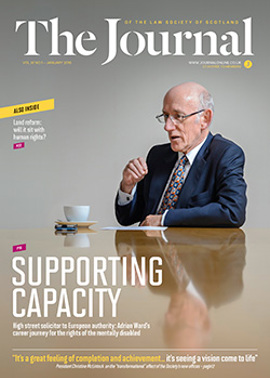Appreciation: Tahir Elçi

On Saturday 28 November 2015, Tahir Elçi, head of the Bar Association of the city of Diyarbakir in south-eastern Turkey since 2012, and President of the Turkish Bar Association, was shot dead.
Elçi was born in 1966 in Cizre, a Kurdish-dominated town on the Iraqi-Turkish border. Admitted to practice in 1992, he was a leading human rights lawyer who spent his life advocating for Kurdish rights in Turkey and defending victims of human rights abuses in the difficult environment of Turkey’s justice system.
On 28 November, Elçi had spoken at an open-air press conference in Diyarbakir and made an appeal for peace between the security forces and Kurdish rebels. He was killed when unidentified gunmen then fired on the conference and police shot back. It remains unclear whether he was caught in the crossfire or was the victim of a planned assassination. Two police officers also died.
A reported 100,000 people attended his funeral, including Kurdish politicians and representatives of his own Bar Association, as well as others from across Turkey. His death sparked nationwide protests and led to the imposition of a curfew in the district where the shooting occurred. There were protests in Ankara, Izmir and Istanbul, where police used water cannon and tear gas to disperse hundreds protesting against the killing.
Throughout his legal career, Elçi had been subjected to a campaign of harassment, and in the weeks immediately preceding his murder he had received death threats. In October, commenting on the Turkish Government’s role in the breakdown of the peace process, he said: “The PKK [the Kurdish Workers’ Party] is not a terrorist organisation; it is an armed political movement with considerable support.” He was subsequently detained by the authorities and charged with “making propaganda for a terrorist organisation”, facing seven and a half years’ imprisonment, notwithstanding that during his entire professional life he had also been an outspoken critic of PKK abuses. Amidst the furore following his detention came death threats via telephone and social media.
After his death, lawyers’ associations across the world issued statements celebrating Elçi’s achievements and bravery, as well as condemning those responsible for his murder. Some have expressed suspicion about the Turkish state’s role in his death, and scepticism about its commitment to a full and proper investigation.
The United Nations Special Rapporteur on the independence of judges and lawyers, Mónica Pinto, condemned the killing, adding: “As one of the three main actors of an independent justice system, lawyers have an essential role to play in protecting human rights, in particular due process and fair trial guarantees, and ultimately contribute greatly to ensuring respect for the rule of law and democracy.
“Governments have an obligation to guarantee that lawyers can work without intimidation and risk to their lives and security and that of their families.”
Amnesty International’s Turkey researcher commented: “Tahir defended the rights of those detained, tortured and forcibly disappeared when it was scarcely possible to do so, risking his own life in the process.”
The United States embassy in Turkey described him as “a courageous defender of human rights”.
Elçi is survived by his wife Turkan, his children Nazenin and Arin, and his brother Ahmet. It is reported that Turkan has now herself received death threats.
I have to declare a personal, and indeed Law Society of Scotland, connection with this tragedy. Between late 2003 and 2005, I took part, as Scotland’s representative and as nominated by the Society (I was then a Council member), in a four-week course at ERA, the Academy of European Law in Trier, providing training on the then new International Criminal Court.
There were about 100 lawyers on the course from all over Europe, including a number of Turkish lawyers, one of whom was Tahir Elçi. Tahir was a wonderful friend and colleague, who enjoyed the social aspects of the course as well as contributing fully and wisely to legal discussion. Great friendships and professional connections were made, and at the end, a group of us decided to keep in touch.
We have met up every year since 2005 in a city where one of us lives. I was fortunate enough to host a group of 26 to Edinburgh in 2009. During the visit, they were welcomed by the then Cabinet Secretary for Justice, Kenny MacAskill, at a reception at Parliament House.
Though Tahir had not been part of our annual meetings, two of his Turkish colleagues, Melek Dogan and Ali Riza Guder, do attend. Melek has hosted two of our meetings in Turkey. When the news of Tahir’s death reached us, we were, as a group, shocked and saddened, recollecting a friend and colleague as well as a brave lawyer, whose death underlines the risks of standing for justice and the rule of law in countries experiencing conflict and oppression.
My condolences and those of the Law Society of Scotland go to Tahir’s wife, family, friends and colleagues.
In this issue
- Cutting the RoS bouncebacks
- Landlords still?
- Split parenting: fewer tears
- Brussels briefing
- Reading for pleasure
- Opinion: Frankie McCarthy
- Book reviews
- Profile
- President's column
- DPA: one year on
- People on the move
- Team building
- Ward's words
- The end of deeds of conditions?
- Human rights and land reform: unanswered questions
- Aye to Brussels
- Appeals: the new landscape
- The 2015 Act: some more thoughts
- Three months in planning
- Buy-to-let: no longer a good bet?
- Scottish Solicitors Discipline Tribunal
- What is ScotLIS?
- Energy input
- Law firms help students' business skills
- Paralegal pointers
- Law reform roundup
- CML Handbook amended
- Service eases stress of separating parents
- Appreciation: Tahir Elçi
- The rocky road to good intentions
- Risk review 2015, risk forecast 2016
- Ask Ash
- What's in store for SYLA in 2016?
- Reflections from the Commission








